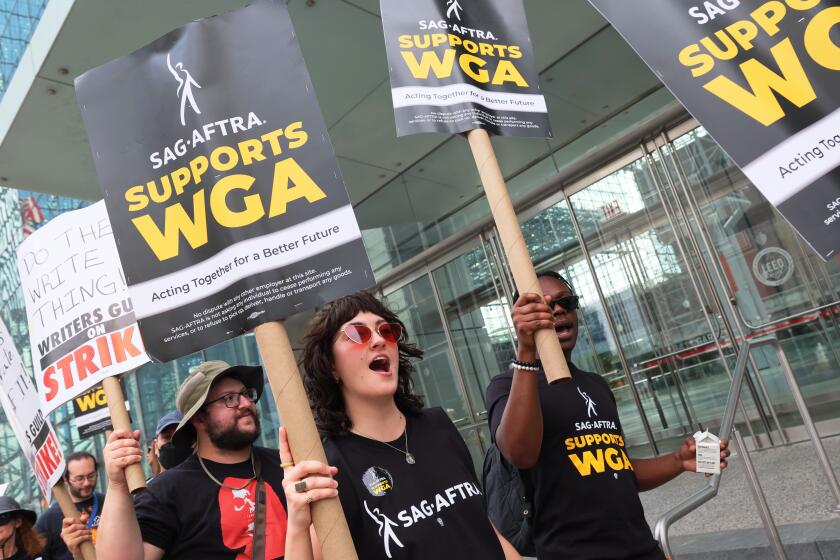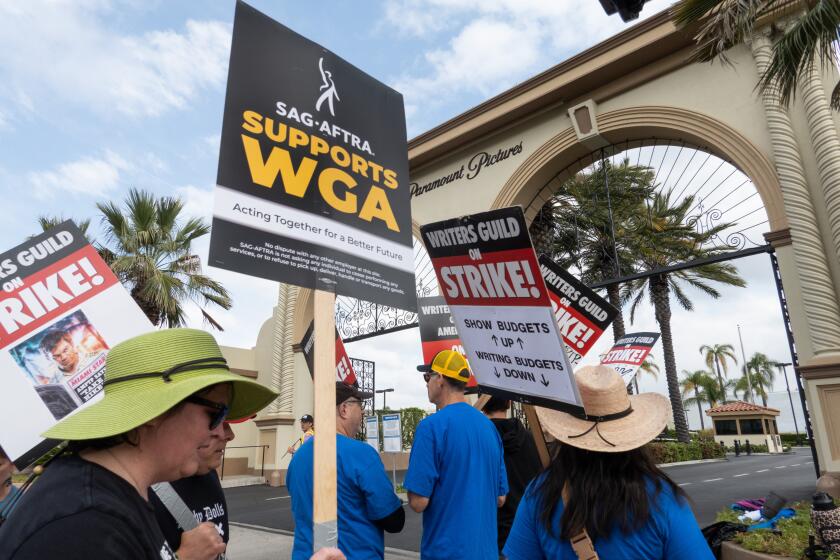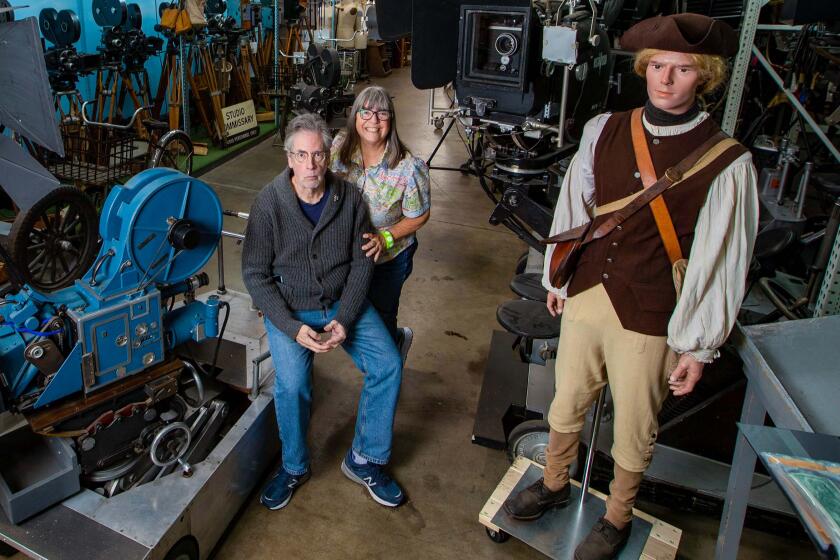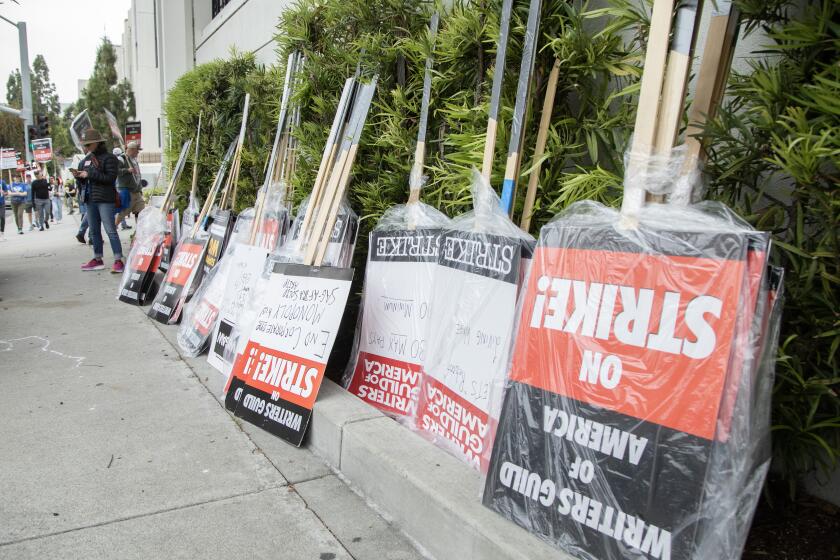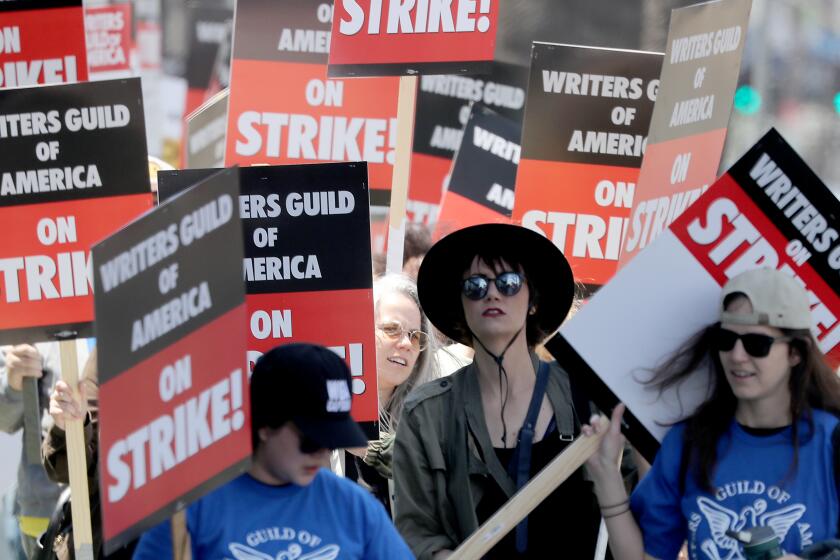Scripted TV production has virtually stopped in L.A. nearly two months after writers’ strike began
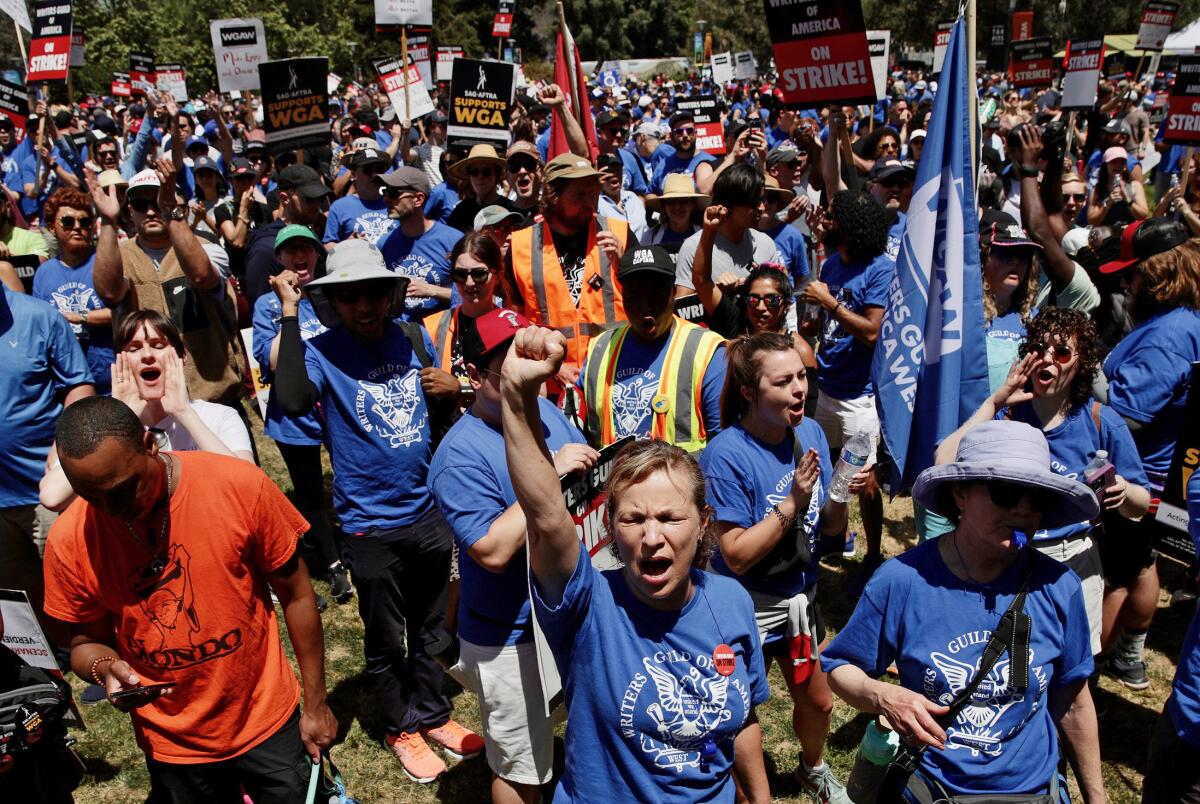
As the writers’ strike nears the end of its second month, scripted TV production in Los Angeles has virtually ground to a halt, underscoring the economic fallout from the ongoing labor standoff.
During the last two weeks, no permits have been issued for scripted TV series filming on location in the L.A. region, according to FilmLA, the nonprofit that handles permits for film shoots on city streets and other locations outside of studio soundstages.
The disappearance of TV shoots is notable because scripted TV is ordinarily one of the main drivers of on-location film shoots in L.A. Typically, there would be dozens of scripted television projects shooting locally this time of year, FilmLA said.
The focus on shutting down individual productions such as ‘The Chi’ reflects the more aggressive tactics being used by Writers Guild members compared to the previous strike in 2007-2008.
The dramatic falloff in activity is reverberating across Southern California’s economy, where many local businesses depend on the industry, as do thousands of crew members who work behind the scenes on film and TV sets.
“We are hearing from some folks that they are really struggling and not sure how long they can hold out,” Paul Audley, FilmLA president, said of the effect on local businesses connected to the film and TV industry.
Overall, the L.A. region generated 394 shoot days last week, down 30% from the same period a year ago, driven by nonunion independent movies, reality TV and commercials. A shoot day is defined as one crew’s permission to film at one or more locations during a 24-hour period.
Only three permits were issued this week for scripted TV, FilmLA said.
The Writers Guild of America has been on strike since May 2 after failing to reach an agreement on a new contract with the Alliance of Motion Picture and Television Producers in a dispute over streaming pay and other issues. The writers previously went on strike in 2007-08.
On Wednesday morning, thousands marched from Pan Pacific Park in L.A. to the La Brea Tar Pits to attend a multi-union rally. Members of the Teamsters, SAG-AFTRA and the International Alliance of Theatrical Stage Employees reiterated their support for the striking writers and their demands for improved pay and working conditions.
The union’s pickets have successfully halted shoots for multiple productions, including Apple TV+‘s “Loot,” the drama series “Good Trouble” and the Lionsgate movie “Good Fortune.” Other long-running series such as “NCIS: Los Angeles” had already wrapped filming before the walkout.
The AMPTP declined to comment.
The previous writers’ strike lasted 100 days and cost the state’s economy $2.1 billion by one estimate. Some industry experts predict the costs could be even higher this time around.
At the Sunland-based prop house Independent Studio Services, one of the Southland’s biggest providers of props to the film and TV industry, the situation is grim.
Like many other Hollywood suppliers, ISS has been hit hard by the writers’ strike.
Members of SAG-AFTRA voted by a wide margin to give their leaders authority to call a strike even before negotiations have begun with the major studios.
“There’s nothing going on, so that’s about 80% of our revenue just stopped, and it has obviously a massive impact,” said Hayden Bilson, vice president of business development at ISS and son of founder Gregg Bilson.
The privately owned company, which doesn’t disclose its finances, has already had two rounds of layoffs and cut about 10% of its 200-person workforce. Some employees have been reduced to working four days a week, and there’s potential for more cuts, Bilson said.
While there appears to be no end in sight for the writers’ strike, another possible work stoppage in Hollywood looms.
SAG-AFTRA members have already authorized their leaders to call a strike if they are unable to negotiate a new contract with the major studios before their contract expires June 30.
A strike by actors would have a potentially greater impact on production, halting shoots worldwide and imperiling plans by studios and networks to resume filming of TV series in the fall.
Some networks have already presented to advertisers fall slates that they hope will be resistant to any labor action. Network executives recently showcased fall schedules led by reality TV and other nonscripted programming.
ABC in particular had a lineup with only an hour of scripted series — repeats of its acclaimed sitcom “Abbott Elementary.” The network is bringing back “Dancing With the Stars” and has ordered a senior-citizen version of “The Bachelor.”
As productions shut down due to the writers’ strike, local prop houses, florists and caterers worry about their future and loss of work, as their business costs continue to rise.
“A writers’ strike essentially creates a looming problem, [a] SAG-AFTRA [strike] essentially shuts everything down,” said Kevin Klowden, chief global strategist at the Milken Institute.
The consequences could be dire for some small businesses still recovering from earlier shutdowns.
“The real question, given that a number of these businesses were already significantly impacted by the pandemic, is how healthy are they?” Klowden said.
More to Read
Inside the business of entertainment
The Wide Shot brings you news, analysis and insights on everything from streaming wars to production — and what it all means for the future.
You may occasionally receive promotional content from the Los Angeles Times.
